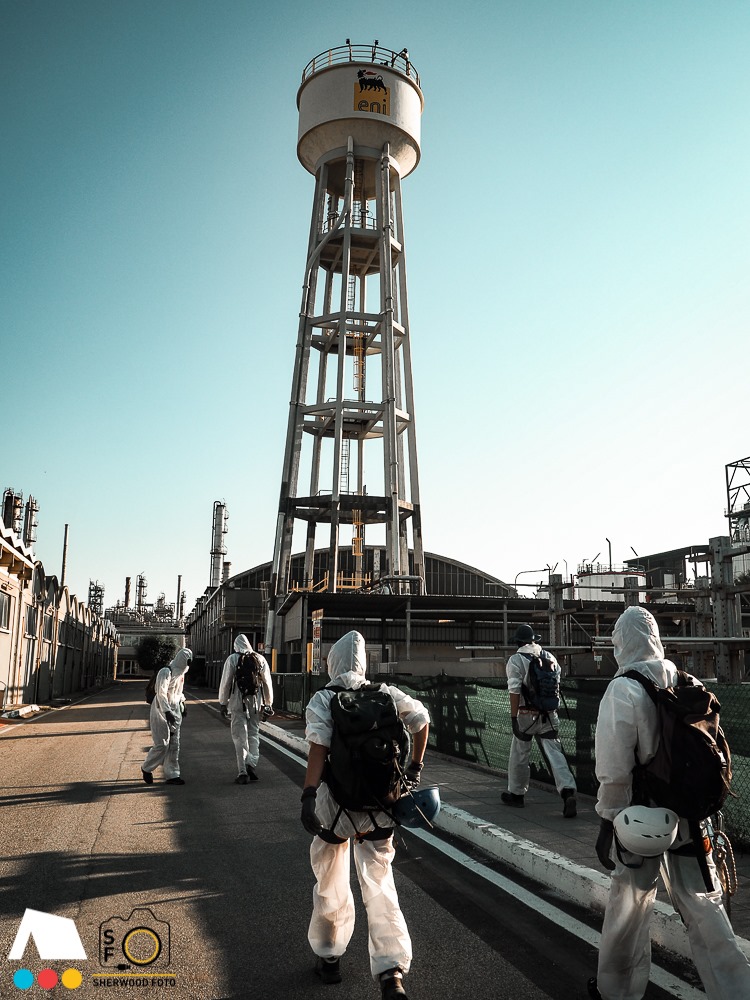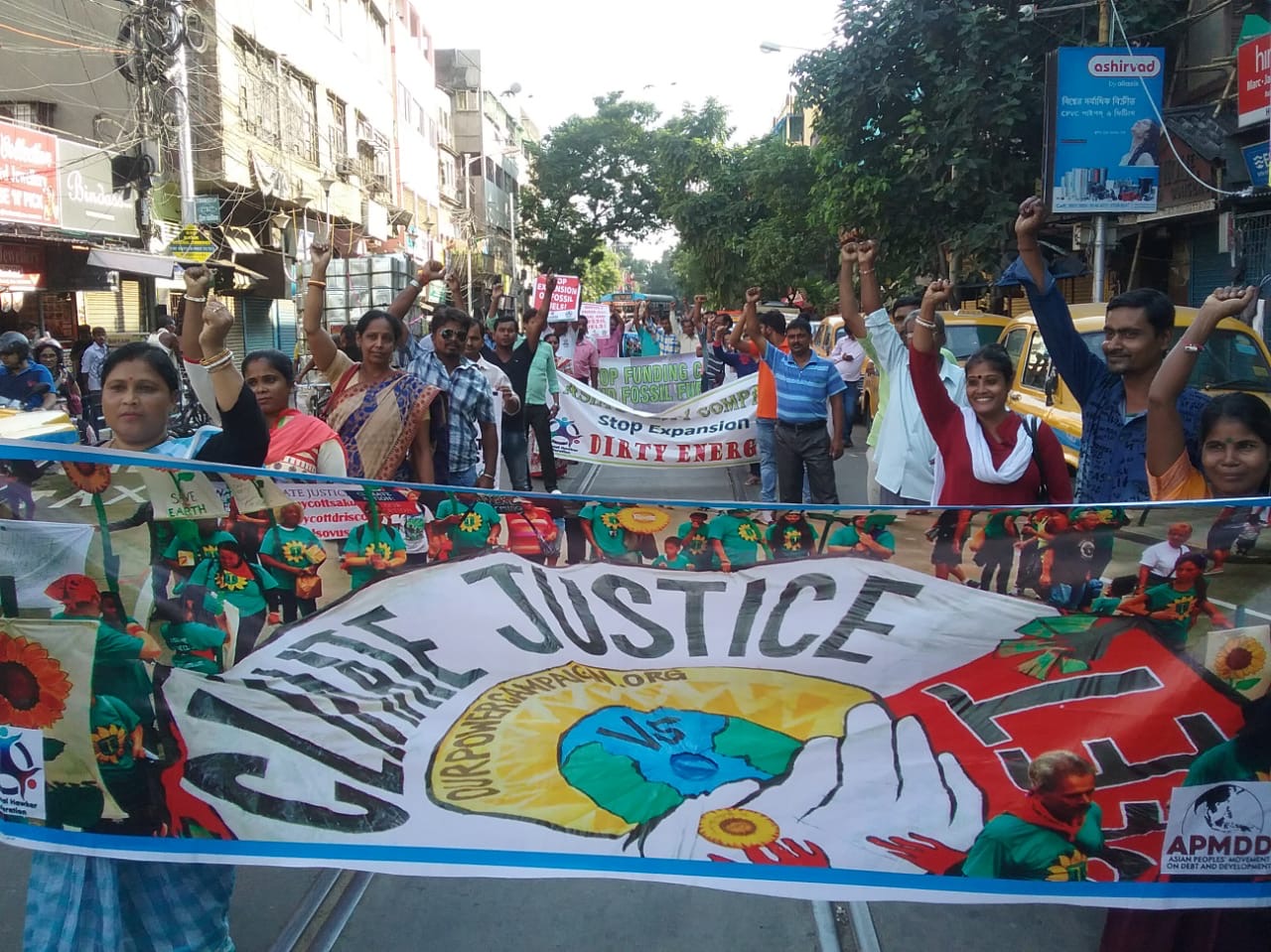Welcome to the fifth edition of The Rising Clyde, a newsletter from the COP26 Coalition! Just a reminder to send us any resources, articles and random things from the climate movement here! Also, remember to join our shared calendar to make it easier to find the dates and details for upcoming meetings and events. For now, click here for the Soundtrack for #5 and enjoy your pre-2nd-lockdown read!
From the Ground Up: Global Gathering for Climate Justice
As announced in the last newsletter, the Coalition is organising From The Ground Up: An Online Global Gathering for Climate Justice from 12 to 16 November 2020. The Gathering will not only mark the moment COP26 was supposed to take place, but will be an opportunity for us to connect with allies across the world to learn from each other, to educate ourselves on climate justice, and to strategise together about where our movement should go in the coming months.
After this, we will coordinate days of action around the weekend of the G20, 21-22 November, to hold world leaders accountable for their failing to address the multiple crises we face. Join the Mobilisations group to help develop our plans.
Thank you for the overwhelming interest, we already received over 100 submissions for sessions, and are still waiting for contributions from our international allies. In the next few weeks, we will arrange a programme that reflects the depth and diversity of our movement and enables us to develop a joint strategy for the coming year. If you would like to help with this, join us at the project team meeting on Wednesday, 30 September at 1pm.
If you have any questions, contact our coordinators Quan and Camille at any time. In the meantime, spread the word!
Boiling Point
We are currently running our online speaker series, “Boiling Point: Everything you ever wanted to know about international climate change negotiations but were too afraid to ask.” In it we explore the basics of international climate change politics and the infamous COP. Experts with years of experience working behind the scenes of major summits will share their knowledge of the history and process of the talks as well as the major issues and main players. Boiling Point runs weekly on Thursdays from 17th September through 22nd October.
The next and third session, “A Potted History of Climate Change Negotiations – Part 2” will take place on 1 October at 2pm (BST). Our third session will explore developments since the Paris Agreement with the Third World Network’s Meena Raman, a Malaysian public interest lawyer who has actively participated in the UNFCCC negotiations since 2007. Register here!
Get involved!
The COP26 Coalition is launching our Trade Union Working Group on Wednesday 30th September at 6pm. This meeting is open to all rank and file activists, officials, and trade union staff. Please help us reach out to beyond the usual suspects – and forward this invite to trade union members who you think would be interested! You can join the meeting here.
As one of the ways to mark this November, the Glasgow Local Working Group will hold live readings of key passages of the IPCC reportthat focus on frontline communities, indigenous groups, and the necessity of societal transformation. If you’re based in Glasgow, or live close to fossil fuel infrastructure in Scotland, and are interested in reading parts of the report, please get in touch with Patrick and Katie!
There’s some exciting actions coming up: Our pals at Extinction Rebellion Scotland plan a series of actions to make the connectionsbetween fossil fuels, finance, and the government. If you’re free between 19-25 October and want to disrupt those most responsible for the climate crisis, join them!
In further Scottish news: Tripod and Young Friends of the Earth Scotland are offering an organising training for Scottish climate, environmental and social activists. If you’re a Scottish activist, apply here for Building Power.
And lastly: Climate Camp Scotland is fundraising on behalf of Migrants Organising for Rights and Empowerment (MORE), who are in urgent need of funding. If you have anything to spare, please support their fundraiser, and if you’re broke, share it with your rich friends!

News and Resources
-
This month wildfires yet again ripped through California, displacing thousands of people and causing untold damage. In the blazes, over a million 1000-year old Joshua trees perished. Will what follows be, as Mike Davis writes, a new apocalyptic “second nature?”
-
If not fire, flood: ¾ of a million people have been affected and many displaced across Burkina Faso, Cameroon, Chad, Ghana, Niger, Mali, Nigeria, Congo Republic and Senegal. This is worrying for the U.N. Office for the Coordination of Humanitarian Affairs (OCHA) who point out that these populations are now increasingly vulnerable to epidemics.
-
Worryingly, displacement is only going to increase as climate change intensifies. The Ecological Threat Register this month predicted that 1.2 billion people could be displaced in the next 30 years.
-
The U.N. is not only worried about humans but also for many other species. A recent landmark report warns that the rate of species extinctions is accelerating.
-
Such unprecedented destruction is not, however, everyone’s fault. Oxfam’s recent “Confronting Carbon Inequality” report points out that, between 1990-2015, the richest 1% alone were responsible for double the carbon emissions of the poorest half of the world’s population. This builds on their earlier findings that the richest 10% of the global population are responsible for the same emissions as the poorest 3.1 billion people.
-
Another way of attributing responsibility shows that the global supply chains of multinational companies such as BP, Coca-Cola and Walmart are responsible for 20% of carbon emissions.
-
Of course blame must be laid at the door of the likes of CDC, the UK’s development finance agency, who continue to invest in fossil fuels overseas.
-
Why let inconvenient facts get in the way of a good story, though, when you could do as the EU does and simply use the “creative accounting” of net-zero to pretend you have ceased polluting when in fact you have done no such thing!
-
After huge pressure from the EU, this week Xi Jinping pledged his country would peak carbon emissions by 2030 and reach “carbon neutrality” by 2060. While these are encouraging sounds we have to ask if China is going to copy the EU by saying one thing and doing another.
-
We may be able to answer such questions thanks to new initiatives such as Climate Trace, which aims to to track human-caused emissions to specific sources in real time—independently and publicly.
-
Tracking emissions, however, won’t be enough. Stopping emissions, in the words of Ende Gelände, needs to happen with our own hands. Follow them here to keep up to date for their ongoing direct action against German coal and gas infrastructure – and very importantly for us, explore their COVID-19 hygiene concept here, which is arguably more sophisticated than the one from the UK government.
And lastly, check out this fantastic poem by Glasgow councillor Graham Campbell on Glasgow’s role in the slave trade, how Scotland’s colonial history was buried through organised forgetting, and how we can together move towards an organised remembering.
